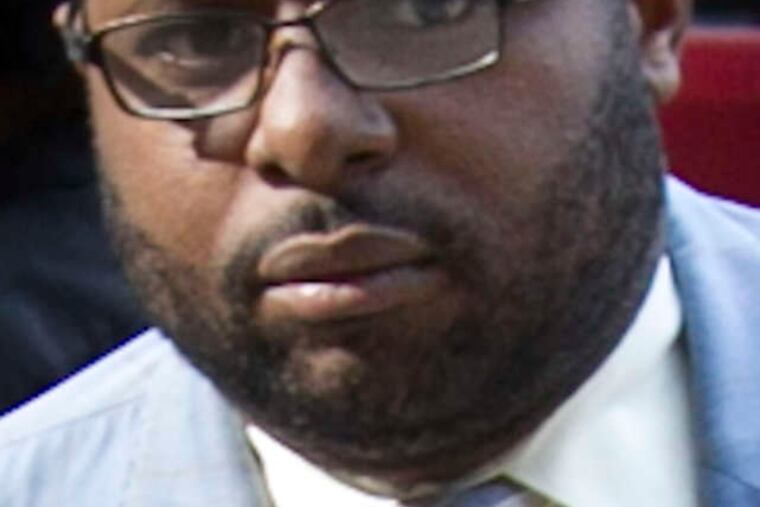'Hookups' debated in case against Traffic Court judge
Years before he became one of five former Philadelphia Traffic Court judges charged in a federal ticket fixing case, Willie Singletary had already made a name for himself.

Years before he became one of five former Philadelphia Traffic Court judges charged in a federal ticket fixing case, Willie Singletary had already made a name for himself.
There was the $11,500 in traffic tickets he amassed before his election to the court. Then the flap he caused by showing a female employee cellphone photos of his genitals.
And - in what good-government wags described at the time as a bald representation of the city's politics of personal favors - there was the 2007 speech to a biker rally promising his "hookup" to campaign donors.
That last gaffe, memorialized in a YouTube video and shown to jurors Wednesday, with which federal prosecutors began to wind down their case against Singletary and his four former Traffic Court colleagues after 18 days of testimony.
The clip showed Singletary as a 27-year-old pastor, dressed in the leather vest of his motorcycle club, delivering what members called the "Blessing of the Bikes." Running for his first term on the court, Singletary led the rally in prayer, then passed around a collection plate, asking for $20 donations.
"Y'all going to need my hookup, right?" he asked the crowd. "It cost money to get that. I've got to raise $15,000 by Friday."
To prosecutor Anthony Wzorek, that solicitation for cash summed up the government's case in a single line. For the last month, he and cocounsel Denise Wolf have sought to portray Traffic Court as an institution plagued by favoritism and corruption.
With witness after witness, they have alleged that judges like Singletary routinely dismissed tickets and gave special consideration to political allies, family members, and friends - and deprived the city and state of untold revenue in fines and fees.
"This is an intent case," Wzorek said Wednesday. "What better evidence of intent could you have than a video of Mr. Singletary saying he's going to give these guys a hookup if he gets elected?"
Singletary's lawyer, William J. Brennan Jr., offered one answer to that question. By "hookup," Brennan suggested, his client meant only that he could bring a deeper understanding of the issues faced by bikers to Traffic Court as a motorcycle enthusiast himself.
That argument came during the testimony of one witness, who, prosecutors say, took Singletary up on his 2007 hookup offer - his cousin and fellow motorcycle club member Angelo Harmon.
Harmon's sons received five citations after police stopped them driving dirt bikes on the highway in August 2010. In all, the tickets carried hundreds of dollars in fines as well as costs to get the ATVs out of city impoundment.
Harmon told jurors Wednesday that he went to Traffic Court to get the bikes released and was welcomed by a familiar face on the bench. Singletary waived the typical collateral costs to release the bikes and later dismissed all the tickets.
Throughout, Harmon said under questioning from Wzorek, Singletary never acknowledged their family relationship.
But was Singletary's handling of that case a crime, or merely the sort of lapse that had landed the judge in trouble before?
The Pennsylvania Court of Judicial Discipline removed him from the bench in 2012 for showing photos of his genitals to his court clerk. When the 2007 video first surfaced, the state judicial conduct board reprimanded Singletary for his actions.
Brennan argued Wednesday that the judge's actions in Harmon's case did not violate any law. Did Singletary ever promise his cousin special treatment, the lawyer asked.
No, Harmon replied.
But, asked by Wzorek whether he had expected preferential handling of his case, Harmon was quick to answer. "Of course," he said. "He's my cousin."
Testimony in the trial is expected to resume Tuesday with the close of the government's case.
>Inquirer.com
Read more about the Traffic Court cases at www.inquirer.com/trafficcourtEndText